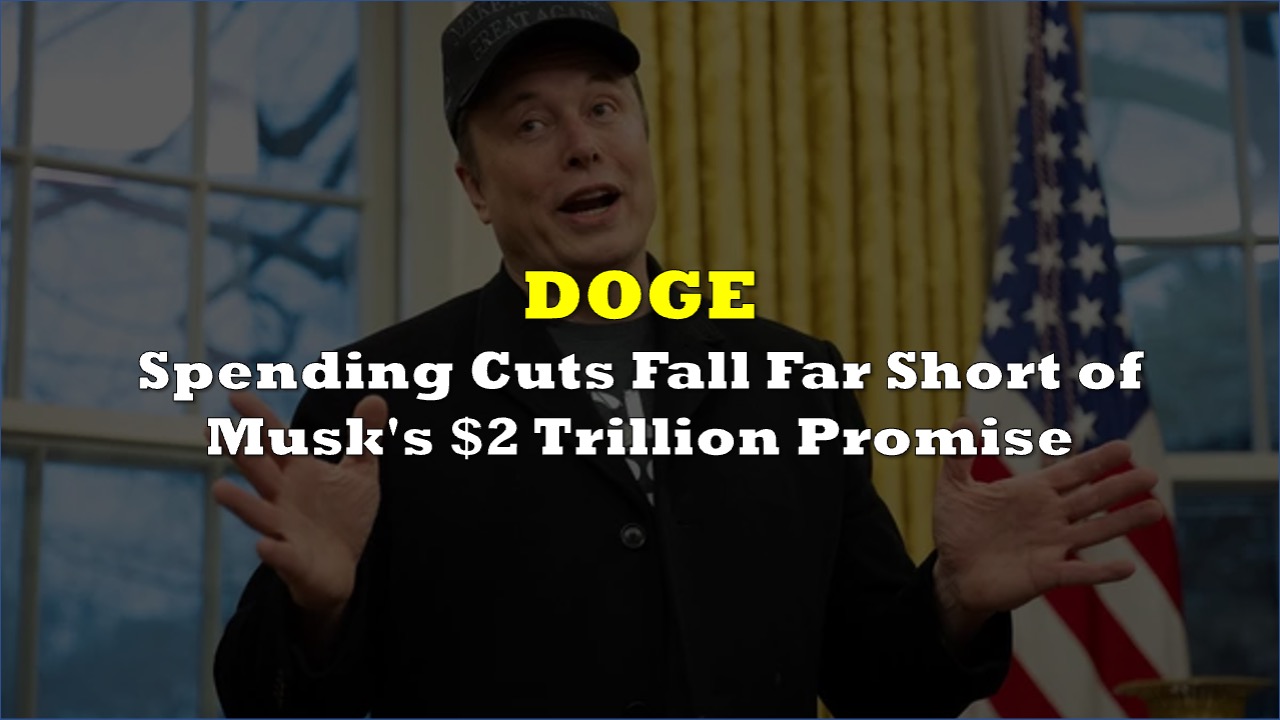The Trump administration plans to ask Congress for $9.4 billion in spending cuts next week, a fraction of the $2 trillion billionaire Elon Musk originally promised to slash from the federal budget through his Department of Government Efficiency.
The modest request represents less than 0.5% of Musk’s initial target. To meet a $1 trillion annual goal, he said during a March cabinet meeting, it would require “saving $4 billion per day every day from now through the end of September.”
The White House will send Congress a “rescissions package” on Tuesday to formalize some cuts made by DOGE, according to administration officials. The package includes $1.1 billion from the Corporation of Public Broadcasting and $8.3 billion in foreign assistance.
Republican lawmakers have privately expressed skepticism about approving even the modest cuts, according to multiple sources familiar with the discussions.
Budget Director Russell Vought has “long speculated that Congress would not approve the package,” according to sources who spoke on condition of anonymity.
“If we can’t pass a $9 billion rescission package, we might as well all pack it up, give in and admit we’re all going to go bankrupt,” Senator Rand Paul, R-Ky., told reporters.
So they went from $2T to $1T to $175B in claimed savings to actually only $9B while yields jumped higher & just the incremental debt refinancing related costs alone will cost more than $9B all the while the deficits will be even larger. And now there's no tariff revenue?
— Sven Henrich (@NorthmanTrader) May 29, 2025
Bravo. https://t.co/1XZ3KvbnQr
DOGE claims to have saved $160 billion since Trump’s inauguration on January 20, though budget experts and news organizations have questioned those figures. An NPR analysis found DOGE’s claimed $105 billion in savings from its first six weeks “can’t be proved” and contains “inaccurate data that has been revised several times.”
Government contracting experts say DOGE’s website “inflates claims of ‘savings’ by including misleading math about contract cancellations,” according to NPR.
A nonpartisan analysis estimates DOGE’s actions will cost taxpayers $135 billion this fiscal year, according to the Partnership for Public Service. The costs stem from putting tens of thousands of federal employees on paid leave while retaining full benefits, re-hiring 24,000 mistakenly fired workers after court orders, and lost productivity, the group said.
About 260,000 government workers have accepted buyouts, early retirement, or have been laid off since Trump returned to office, according to a Reuters tally.
DOGE has focused on canceling diversity programs, consulting contracts and federal leases rather than major spending drivers like Social Security, Medicare and Medicaid, which account for nearly half the federal budget.
Nine of the 15 agencies targeted by DOGE were mentioned in Project 2025, a conservative blueprint for remaking government, according to Reuters.
“DOGE has created this false perception that the entire budget deficit can be eliminated by going after waste, fraud and abuse,” said Brian Riedl, a budget expert at the Manhattan Institute.
For every dollar the federal government has spent since October, DOGE has claimed to save “the equivalent of about four pennies,” NPR reported.
Federal courts have blocked several DOGE actions and ordered the reinstatement of fired workers. A federal judge ruled last week that the US Institute of Peace and its ousted president had a right to return after DOGE staffers took over the building.
Multiple lawsuits challenge DOGE’s access to federal databases and payment systems.
Musk announced Wednesday that he was leaving the Trump administration, with his “off-boarding” beginning Wednesday night, according to a White House official. His 130-day mandate as a special government employee was set to expire Friday.
Elon fired the IGs and gutted the federal agencies investigating and regulating his companies including the SEC, NLRB, DoD, NHTSA, FDA, DoA and FAA.
— Melanie D'Arrigo (@DarrigoMelanie) May 29, 2025
DOGE could only verify $5 billion in savings for this year, while potentially costing taxpayers $135 billion.
There’s your fraud. pic.twitter.com/nG2tMtyE95
“As my scheduled time as a Special Government Employee comes to an end, I would like to thank President Trump for the opportunity to reduce wasteful spending,” Musk wrote on X.
His departure came a day after he criticized Republicans’ spending bill on CBS News, saying he was “disappointed” by the “massive spending bill” that “increases the budget deficit.” The comments upset senior White House aides, according to sources familiar with the matter.
Musk’s exit also follows Tesla’s 71% plunge in first-quarter profits. The electric vehicle maker has faced boycotts and protests over Musk’s government role.
Top DOGE officials Steve Davis, Katie Miller and James Burnham are also leaving the White House, according to administration officials.
Information for this story was found via the sources and companies mentioned. The author has no securities or affiliations related to the organizations discussed. Not a recommendation to buy or sell. Always do additional research and consult a professional before purchasing a security. The author holds no licenses.









